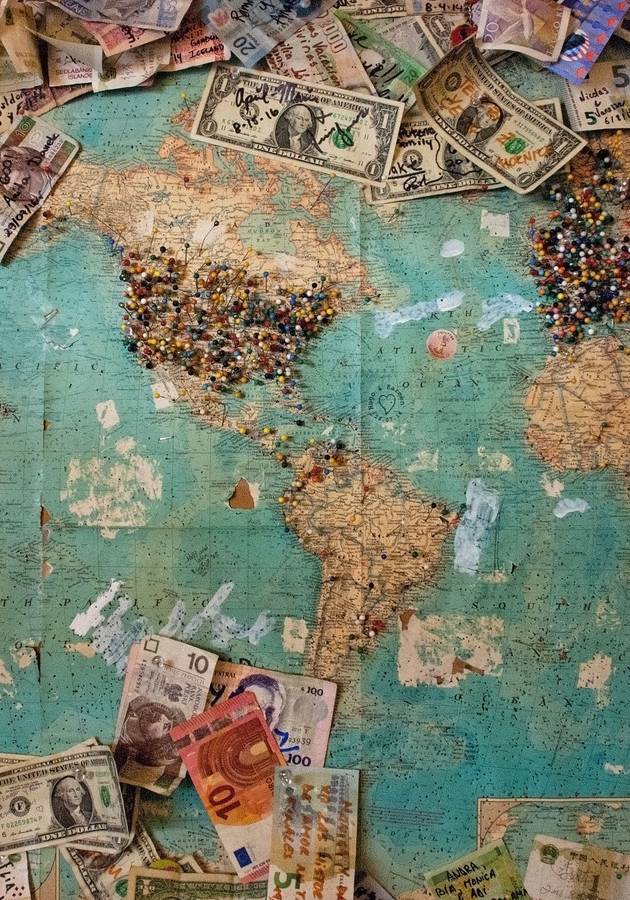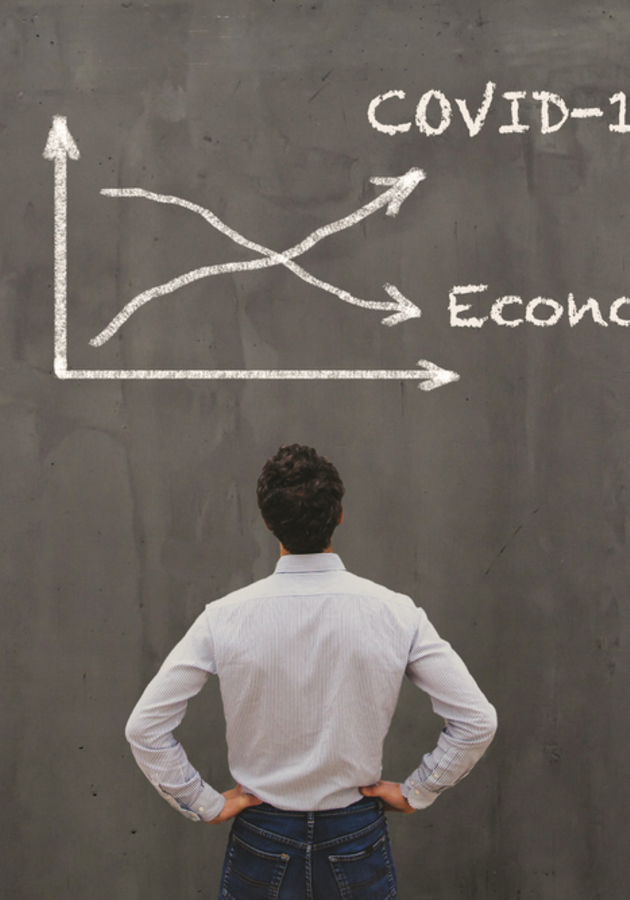Legend has it that money makes the world go round. But what does it mean? How important is money and how did it get that status? "The Ascent of Money" was written by famed historian Niall Ferguson, considered one of the most influential people in the world by Times magazine. In the book, he tells the story of the emergence of money and its evolution to current standards. Also, he explains how the concept of money is more important than the object itself and illustrates the problems of financial bubbles in the world. It offers great insight into the world's financial crises and human-made money protection systems. Discover why money has value to man even as technological innovations have affected the financial system in force in the world.
Why Money Has Value
Money did not always exist, but it changed the human being, who from hunter became a financial participant. Not everyone likes our money-based system and those with socialist ideas think there are other better systems. However, what history has proven is that money is one of the most efficient ways of conducting daily business. Some have used shells, fabrics, clays, and metals to represent money, but no matter what it is made of, the idea is always the same: the real value that money has is represented by the good or service that a person is willing to trade with him.
Most of the money used in antiquity was made of precious metals like gold, silver, and bronze. Because these metals were rare, they had value to people, who were willing to be paid with them for things they did and produced. At that time, to enrich yourself, you had to search for these materials and keep them in abundance. However, when Diego Gualpa discovered a silver mountain in Peru and took his wealth to Spain, it caused inflation in Europe.
In the old days, we could ask the banks for the gold our money represented, but that is no longer the case. Money has now become intangible. It doesn't mean that it is worth nothing but reveals the true nature of money: it only has value because some people believe it. We trust that we are being paid by someone who can pay for something that has value.
These days, most of our transactions are carried out without using cash. We read numbers on a screen that tell us how much money we have and when we pass the card to buy something, the numbers decrease. Our bank handles real money, and we all trust the system and how it works. So we can see the truth more clearly: Money is not a substance, but an idea created and believed by the human race.
Guarantee Your Financial Protection
Soon after the idea of money came, people thought of ways to protect it. One of the most important innovations that resulted from this desire to protect money was insurance. Originally, it was created to protect the business interests of marketers, but now it is an essential protection for many aspects of our lives.
We all need to handle insurance if we drive a car, have a home or travel on vacation. It is a risk management tool in which someone is paid to take responsibility for some disaster. Several risks need to be managed: the risk of losing your home or your assets, the risk of losing your income from any illness and even the risk of death.
Obviously, you will not want to pay an insurance company the full amount to cover the costs of these events. The purpose of paying for insurance is to make sure that you will not need to pay an absurd amount when bad things happen. Instead, you pay a small percentage. If any disaster happens, your insurer pays for the damage in its place. Insurance companies have innumerable methods to calculate the risk of things happening. If the risk is high, you pay a higher amount.
When insurers accept you as a customer, they are betting against your disaster. If bad things do not happen, they will still be paid for coverage. Since their business is to predict the likelihood that bad things will happen, they usually get it right. When you think about it, it sounds like a bad deal for the insured, but if it were not needed, it would not be sold until today. Inevitably, bad things happen to some people and having insurance is a wise choice. When you buy insurance, you are betting that something is going to happen. Just like putting money into savings, coverage is an investment to protect us from an unpredictable future.
You can also look at social security and government providence as a type of financial insurance. We pay a portion of our wages to the government with the idea that we will have astable when we retire. However, with inflation, the cost of living and the population increasing, it is also important that you invest in your retirement. Fully relying on government for your financial protection may not be the best option, and history teaches us that financial protection is essential.
The Stock Market And Financial Bubbles
One important financial innovation was the invention of company stocks. This concept allowed businesses to protect themselves financially, spreading the financial risk to large numbers of people.
A company is divided into equal shares, which can be purchased in several volumes, allowing shareholders to have a portion of the company's profits. However, the shareholders are also responsible for the company's debts, but their responsibility only extends to the value of their shares. So if anything goes wrong, shareholders are only responsible for the value of the shares they own.
Stock buying and selling happen in the stock market, a volatile and fast environment that has the power to build or break an economy. The stock price of a company in the stock market is determined by the profits that buyers imagine it will make in the future. Everything related to the internal workings of the company and its products is judged by the stock market hourly to determine its value. Sometimes this results in financial bubbles, where stock prices are very high and fall rapidly, causing a dramatic economic trauma.
The "bubbles" follow the following pattern: first, there is the shift, where economic circumstances change, and opportunities for profit appear. Then there is the euphoria, and people start exchanging excess stock, and the price starts to rise. Thatis quickly followed by the mania, which is the bubble. Inexperienced investors get excited and are cheated. After that, the affliction takes care of the more experienced shareholders, who discover that the expected profits will not be reached. They start selling their stock to save the money invested. Finally, repulsion strikes everyone, who desperately tries to sell their stock at whatever price they can manage to escape while they still can, blowing the bubble.
There have been some major events like this over the years, but the worst crash happened in 1929. The bursting of that bubble was so terrible that the United States was taken over by the Great Depression, which lasted a whole decade. People were ruined, unemployment was rising, and almost half of US banks went bankrupt. Although the exact cause of this huge crash is unknown, it is clear that it was influenced by people's unpredictability.
The stock market can be confusing for us because we do not always understand what moves it. Even so, in 400 years of existence, actions have followed the same five-step bubble pattern. The only real constant shared by all stock markets over the years is the people and the things they can do to protect the money.
The Real Estate Market Isn't A Good Investment Anymore
We are always looking for safe places to leave our money. Real estate used to be considered one of the safest investments a person could make, but today that may not be true.
That is partly because of subprime mortgages. A mortgage of this type occurs when a financial institution lends money with an adjustable interest rate to someone with bad credit, which allows that person to buy a home. The institution reuses the mortgage and sells it to a third person who does not know the risk they are taking. After the initial period of low-interest rates and low payments, interest rates rise, and the homeowner with poor credit can no longer pay. When the person fails to pay their mortgage, it is evicted, and the house is sold. In theory, the third person who is now the owner of the mortgage can recover their money from the sale of the property.
If this happened in only a few cases, the problem would not be so great. However, in recent years, thousands of subprime mortgages have been released, which has resulted in a flooded market of foreclosed homes with no payment. That devalued the price of properties and caused many people to lose money because of that decrease in the value of their homes.
In many cases, the fact that the mortgage was worth more than the value of the property forced people not to pay their mortgages and lose their homes. But if the banks that own the mortgages are not receiving payments and can't even recover the value of the mortgage by selling the devalued property then they also face huge financial losses.
You may notice that this seems to follow a pattern similar to the stock market bubble. In 2009, the housing bubble burst was felt by financial institutions that were completely worthless mortgages. Large organizations were forced to liquidate their assets, including traditional institutions supported by the government. The US government needed to intervene to stabilize the situation that had significantly damaged the country's financial system as a whole.
What Are The Government Bonds
The concept of money became extremely powerful. Now he is a fundamental part of everything - our personal lives and our country. Everyone needs money, and the invention of credit means that it is now possible to borrow large amounts from an individual or an institution as a bank. Companies and countries borrow large amounts of money to support their programs. As you can imagine, banks can't withstand the gigantic funds that a government needs to manage an entire country. And that's why the bonds were created.
A government bond is a promise from the issuing government to pay the money that the person is saving. They are issued for a certain time with a fixed interest rate that determines what the owner should receive. So a bond with an interest rate of 1.5% per year prescribes that the owner will receive 1.5% of the value of the bond each year for the duration of the bond, which is usually 5 to 10 years. At the end of the bond term, the amount will be paid to the owner. These securities can be sold by the owner to anyone who wants to buy, for any value in the securities market. The trading of securities takes place on an international scale.
The bonds have been around for a long time and have helped governments raise money for wars and other things. But if a government can't pay its debts, the effect on the bond market can have a drastic impact on the country's economy.
The bond will not be worth much in the market if the government that issued it lacks credibility, so it will be sold for less than it's worth. When the value of a security falls, interest rates rise. When bond interest rates rise, the country's loan interest rates also increase.
A government that borrows a lot of money will have difficulty paying what it owes and will lose credibility. Currently, the United States has a debt totaling $ 9 trillion and is projected to be $ 12 trillion by 2017. Much of this debt is due to China, which means that this country has some control over the value of the American currency as well as the rates of interest. Excessive expenditures without any payment conditions have weakened the United States as a financial superpower in the eyes of the world.
China: The World's Economic Leader?
For more than a century, the United States has been leading as a global financial powerhouse and people had little reason to think that would change. However, we can witness this change sooner than expected, thanks to the credit problems in the country and the monstrous debt. As a nation, the country spends a lot more money than it can, and this is generating some repercussions. Old economic problems for the United States had global repercussions because the country led the world regarding the economy. Nowadays, however, China has been able to avoid complications and keep the rest of the world from falling with America. The world is witnessing a change of power.
Some people estimate that China can become the world's economic leader by 2027. The fact is that it has been saving money for years and years to avoid economic problems already experienced in the past. Most families in China have cash reserves and, consequently, the country also owns. So when the United States needed money, who did they ask for? For China, of course, it was only willing to buy US government bonds and extend loans.
Having billions, perhaps trillions of US dollars worth of bonds has allowed China to keep the value of its money low. It means that goods are cheap and American consumers will continue to spend. In a way, the United States has been in a relationship with China, while China holds all its money and America spends. But now the US is facing a major financial problem and may need to break out of that relationship.
Originally, the US took advantage of its relationship with China and all the advantages that were offered, but now that relationship seems to be the root of the problem. It will be a major reversal of roles for the United States to emerge from the world financial leader to a struggling nation in need of outside assistance. In the past, the US helped other countries. It can be difficult to understand the money, and even harder to control it, and it seems that the US is losing that control. The United States spent rather than kept and did not protect its finances.
Final Notes:
Money was a watershed for mankind, as well as several other major developments. Somehow, it is the way we measure our failures and life achievements. When we look back, we see how far we have come and realized that money has always pushed things. But we also realize what money is: an idea.
Ideas are dependent on people, and people are not always rational and sensible creatures. So money can be problematic and unpredictable, as in the stock and bond markets. That means that money can be dangerous, especially if we do not protect it and use it responsibly. And that's why we create insurance and savings to protect ourselves financially.
Even the global balance of power changes, according to who has money and who does not. Money has become a very complex idea that can get you into trouble without you realizing it. That is exactly why we need to observe the standards of our financial past and protect ourselves for the future.
12min tip: Did you finish this book and enjoy knowing about money? So check out the other titles on 'Money and Investments' category right now. After reading, how about watching some movies to understand the financial market? Our recommendations, for starters, are The Wolf of Wall Street and The Big Short.





























